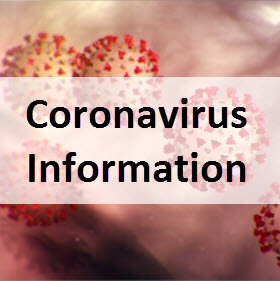Coronavirus (COVID-19)
/What is Telecare doing to prepare and deal with coronavirus (COVID-19) outbreaks?
Our top priority at Telecare during this coronavirus pandemic is the health and safety of our staff and the people we serve.
We know the public is worried about many healthcare issues right now. We share this concern; it drives what we do every day. Across our organization, we are taking aggressive action to contain the potential spread of COVID-19 in our programs and facilities.
Vaccination is our top priority:
Telecare is actively working to ensure that our staff and persons served have the opportunity to receive vaccinations as soon as possible. We are working in partnership with federal, state, and local agencies and public health departments to ensure that our essential healthcare programs are prioritized for vaccines. We are striving for a 90% vaccination rate in order to provide the recommended protection to stop the spread of the virus.
We have prepared a vaccination information page here for our staff, clients, families, conservators, and anyone needing helpful information to make an informed decision about COVID vaccine options.
Additionally, here are some of the other steps we are taking to mitigate the risks and impact of COVID-19:
We are strictly adhering to CDC guidelines, and are in compliance with all state and county regulatory requirements.
We are gathering and acting upon guidance from experts. Externally, we are working with chief medical and public health officers at the county and state agencies. We are also following established guidance from Community Care Licensing (CCL) and the Department of Health Care Services (DHCS), as well as any additional guidance coming from these agencies in response to the current crisis. Internally, we have marshaled the expertise of many groups, including our quality and infection control teams, our nursing leaders, and our physician staff of psychiatrists and internal medicine professionals.
Enhancing Infection Control
We are continually updating and implementing infection prevention and control policies, procedures, and tools, as well as actively putting in place strategies to help us cope with a surge in need. We have vigorously worked to ensure that each policy and procedure follows the very highest standards.
We have implemented screenings for anyone entering Telecare programs or facilities. All persons entering our locations, including staff, clients, vendors, and visitors (where allowed), are being screened according to the current standards of the CDC.
We are ensuring that our healthcare providers avoid working while ill and have developed approaches to help address potential staff shortages as the outbreak unfolds.
We have provided staff surgical masks to wear while working, offer masks to clients to wear, and have approved the wearing of homemade cotton masks while supplies are short.
For the safety of our residents and staff in all Telecare programs, we are adhering to social distancing guidelines and have restricted group activities to reduce close personal interaction, both within our locations as well as out in the community.
We are doing daily cleaning and disinfection of commonly touched environmental surfaces in our programs and facilities, using an EPA-registered hospital-grade disinfectant or equivalent to decrease environmental contamination.
Enhancing Infection Control at 24-Hour and Skilled Nursing Facilities (“Inpatient”)
Our inpatient programs provide care to some of the most vulnerable and at-risk individuals in our communities because of their complex mental health needs and co-occurring conditions. Individuals in these settings require more intensive support. The duration of care can be short-term or long-term based on the individual’s needs.
To increase safety measures in our inpatient programs during the pandemic, we are strictly following both established guidance from the CDC and state and county public health departments, as well as specialized guidance from these agencies related to COVID-19.
For the safety of our residents and staff in our inpatient programs, we have restricted in-person visitation. We have altered dining room experiences to limit the numbers of those being served meals at one time and have implemented in-room dining as needed to minimize group contact. We are supporting alternative methods of visitation during this time, such as video calls and social media interaction.
Tracking and Managing Incidents or Outbreaks
We are tracking and monitoring symptoms and positive COVID-19 tests for the people we serve as well as our staff members.
Our program leaders are working directly with our corporate medical and nursing staff to manage and treat each case and program response in alignment with the guidance of the CDC and state and local public health departments, as well as all appropriate requirements and regulations.
Complex medical decisions are determined by our physician and nursing leaders in cooperation with those we serve and their families, conservators and/or guardians.
Securing Personal Protective Equipment (PPE)
We have created a PPE inventory tracking and management process so we can better manage limited resources and move them to the places with the most urgent needs. We have established a company-wide procurement process – and our team has been working non-stop to acquire masks, gloves and other supplies despite global supply chain shortages.
We have re-educated all staff – both clinical and nonclinical – on proper use of personal protective equipment and handwashing techniques and are reinforcing these practices consistently.
Protecting the Health and Safety of Our Staff
We have established an interim HR policy that waives the waiting period before benefits go into effect, enabling new employees to access healthcare and take time off if needed for COVID-19 if needed.
We have also temporarily adjusted our standard time-off policy to make sure that any staff member who needs to take time off for illness is able to do so, even if they have no time-off accrued.
We are creating an automated Telecare on-call system to provide back-up staffing and support.
We have established rigorous communication systems to respond to questions and concerns in real-time.
Internal and External Communication with Stakeholders
Internally, we are communicating with our leadership and staff company-wide with up-to-the-minute information, tools, and systems to ensure safety and clarifying questions.
Externally, we are also communicating regularly with community stakeholders, including families, conservators, and public health agencies.
We have a cross-functional command team that is guiding our response, continually reviewing, monitoring, and updating how we can improve efforts as more information becomes available and the pandemic unfolds.
It is important to note that Telecare is an essential healthcare provider. We are licensed by state agencies and contract with 22 county behavioral health departments. We are required under their policies to continue operations during COVID-19 and to accept new patients.
We have also been working to ensure that the critical mental health supports we provide to our patients with significant, complex needs continue without interruption. These supports enable the people we serve to maintain their health and stability while they continue in their recovery.
More Information:
If you could like to check on a family member or loved one, we encourage you to first contact the program where that individual is receiving services. The local program staff members are able to assist with individual needs and concerns.
If you have questions about Telecare’s broader response to the coronavirus outbreak, please contact communications@telecarecorp.com.
Coronavirus/COVID-19 Q &A
Are all patients and staff at your nursing homes being tested for coronavirus/COVID-19?
Telecare follows the current CDC recommendations for screening for possible COVID-19 which includes a symptom checklist and monitoring for fever. In addition, the medical providers at Telecare will recommend testing of patients and staff at our nursing homes whenever there are symptoms that suggest COVID-19 infection, or whenever there is concern about possible exposure. Widespread testing is limited due to testing supplies, but we have been much more successful when testing is available locally and in cooperation with public health.
Are your patients more susceptible to COVID-19 than the general public because of their mental health condition?
Many persons with behavioral health conditions will have co-occurring medical conditions that are also known to increase risks for more serious illness related to COVID-19. These might include an increased rate of diabetes or obesity, or lung disease related to cigarette smoking. For this reason, we monitor all clients for potential symptoms and have restricted visitation to reduce the risk of exposure. All staff are required to wear masks and masks are made available to all clients.
How frequently are staff tested?
Staff members are tested if test resources are available and upon recommendations from public health. Telecare has been attempting to obtain testing supplies, but this has been a significant challenge.
How frequently are patients tested?
Patients are tested if they present symptoms and upon recommendations from our medical team, or upon recommendations from public health. In an abundance of caution, any new admission or readmission to our nursing homes are placed in a private room and receive testing. The testing is repeated after 24 hours to confirm.
If staff and/or patients aren’t being tested, why not?
The primary reason for limited testing is due to limits in supply of test materials. The CDC has recommendations for test priority. Our testing priority has recently been elevated and, with cooperation of public health, we have had access to supplies where needed. We expect our testing capacity to increase as testing materials become more readily available.
Is anyone being tested for antibodies?
The preferred testing method at Telecare is the antigen testing or testing for the COVID-19 virus. This will reveal if a person has been infected. Antibody testing is less reliable and tests for the development of an immune response to the virus. This immune response may take many days to develop and, testing too early will result in a faulty reading.
Do you have enough PPE for staff at your nursing homes?
Telecare has given priority to our nursing homes and they currently have adequate supplies of PPE, including N95 masks.
Do you have ventilators at your facilities?
No. Ventilator support is beyond the licensed capability and scope of practice at our facilities. Any person who would need that level of medical care would be transferred to an acute medical care facility.
Have you had COVID-19 patients who were so ill that they could not be cared for at your facility?
Yes, we have had a small number of COVID-19-positive patients whose condition warranted admission to hospital care for medical treatment. Once recovered, patients are readmitted to our program and their condition is monitored to ensure they remain well.
Are you sharing your COVID-19 data – number of cases, outcomes, etc. – publicly?
We share all data with public health and with our county partners.
Are the protocols you are operating under strict enough to contain the spread of the virus? Are you engaged in any practices that are stricter than these standards?
Our mitigation efforts are consistent with the current recommendations form the CDC and from state and local Departments of Public Health. These include hand and respiratory hygiene, social distancing, wearing masks and all necessary PPE, and restricting visitation or outside contacts. All persons are screened before entering our facilities and turned away if they present with symptoms of COVID-19. Whenever reasonable, telehealth services are offered to limit human exposure.
Given the risks at our nursing homes, stricter measures are taken for any new patient coming into the facility. All admissions or readmissions are placed in a private room with a private bath. They are tested for COVID-19 and must remain in isolation for a minimum of 14 days or if proven COVID-19 negative with testing, that includes repeat test confirmation. These stricter standards were adopted due to the high risk associated with the elderly.
Coronavirus Support Services
The following programs were created in part to provide support during the COVID-19 pandemic. Click on the tiles to learn more about each one.




